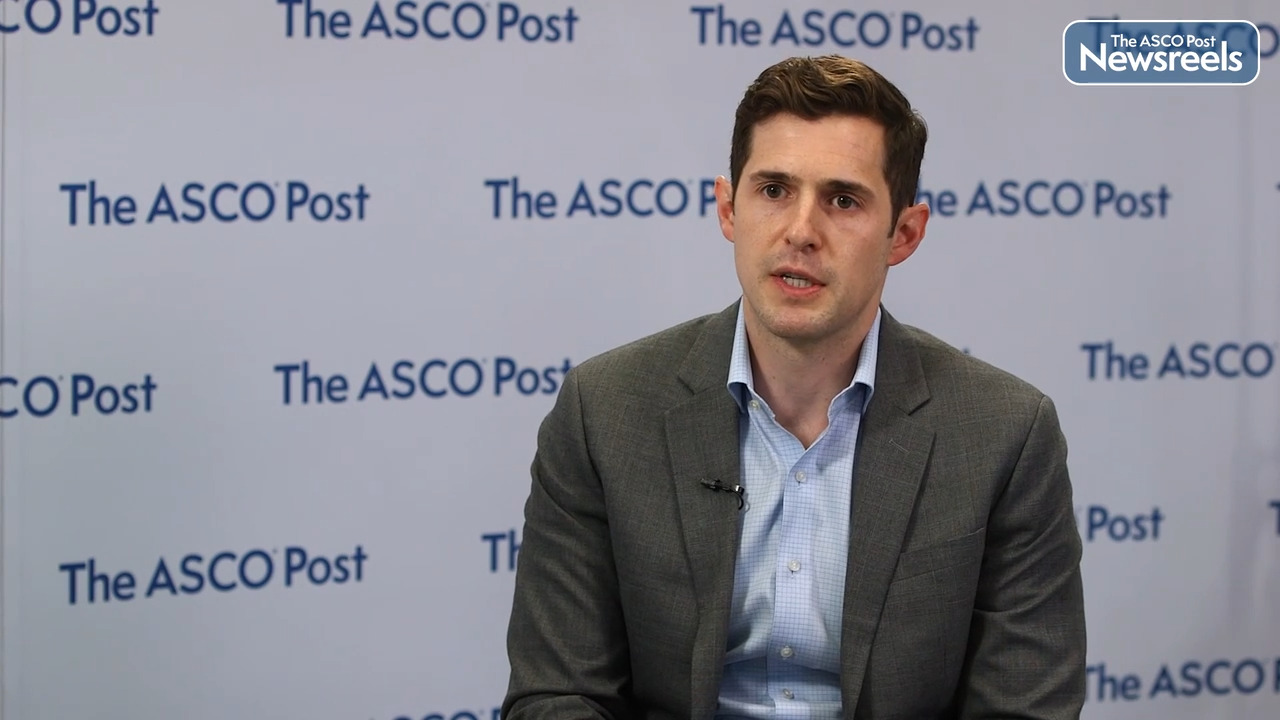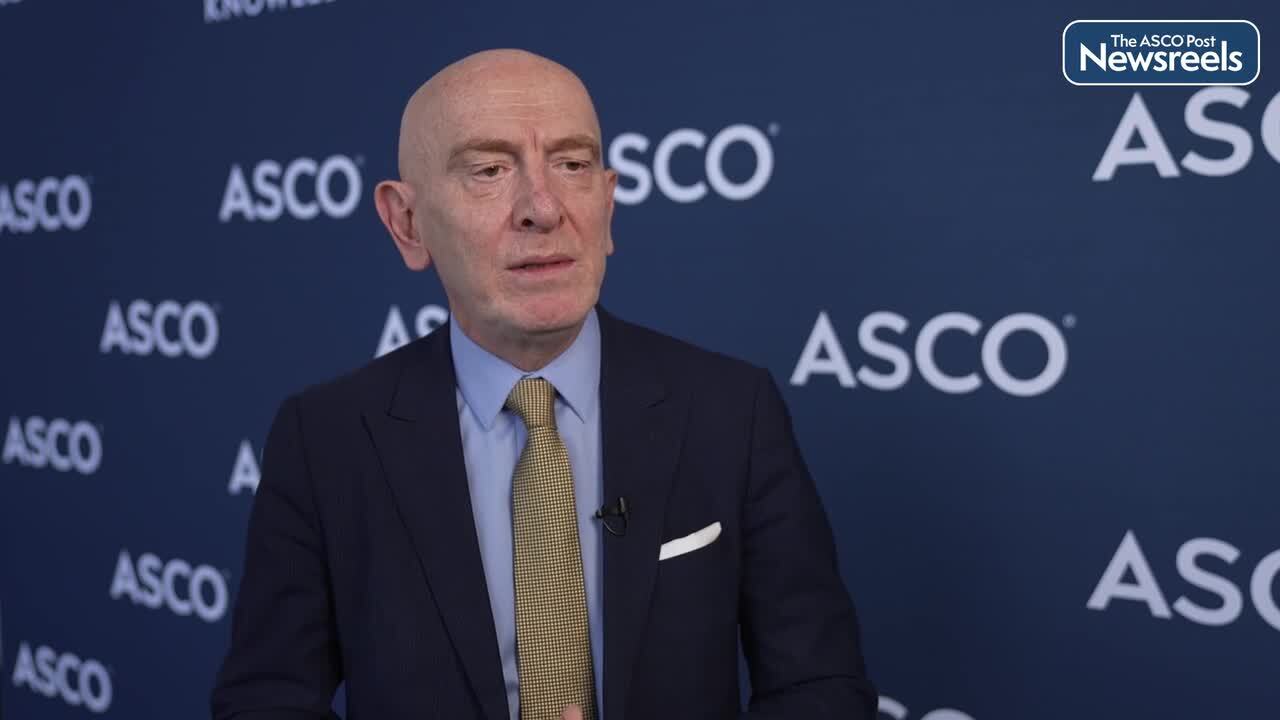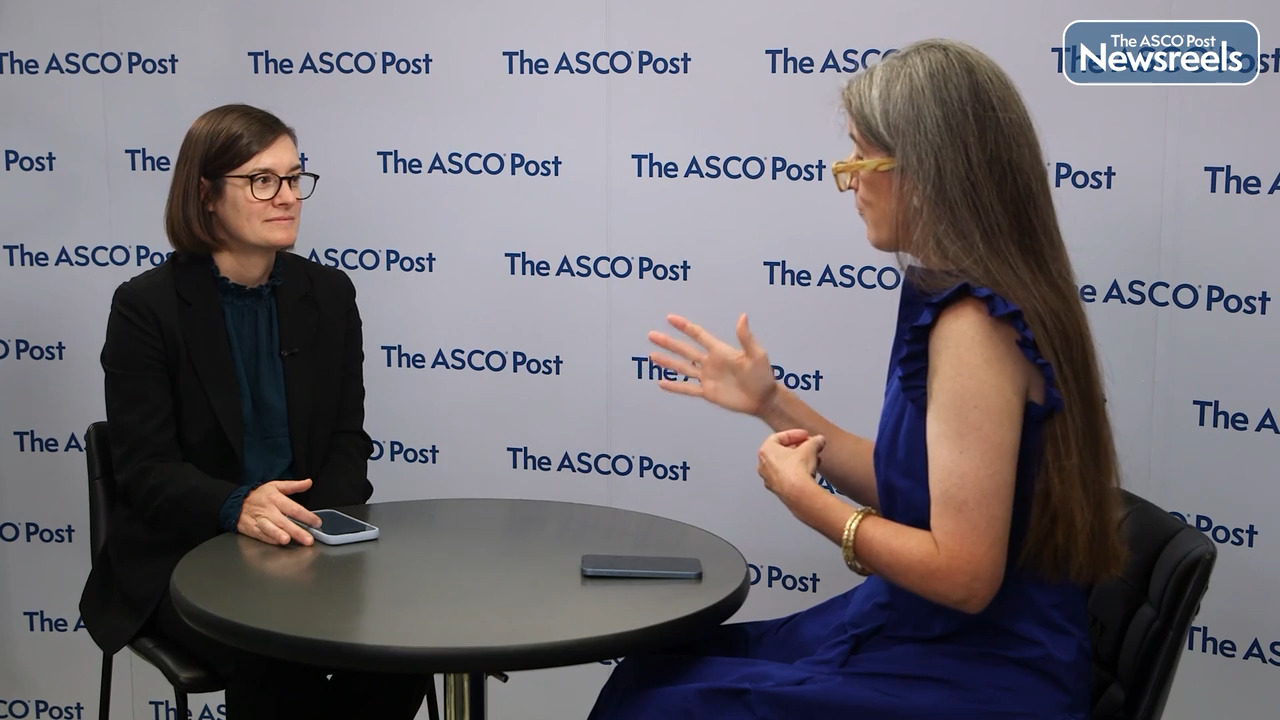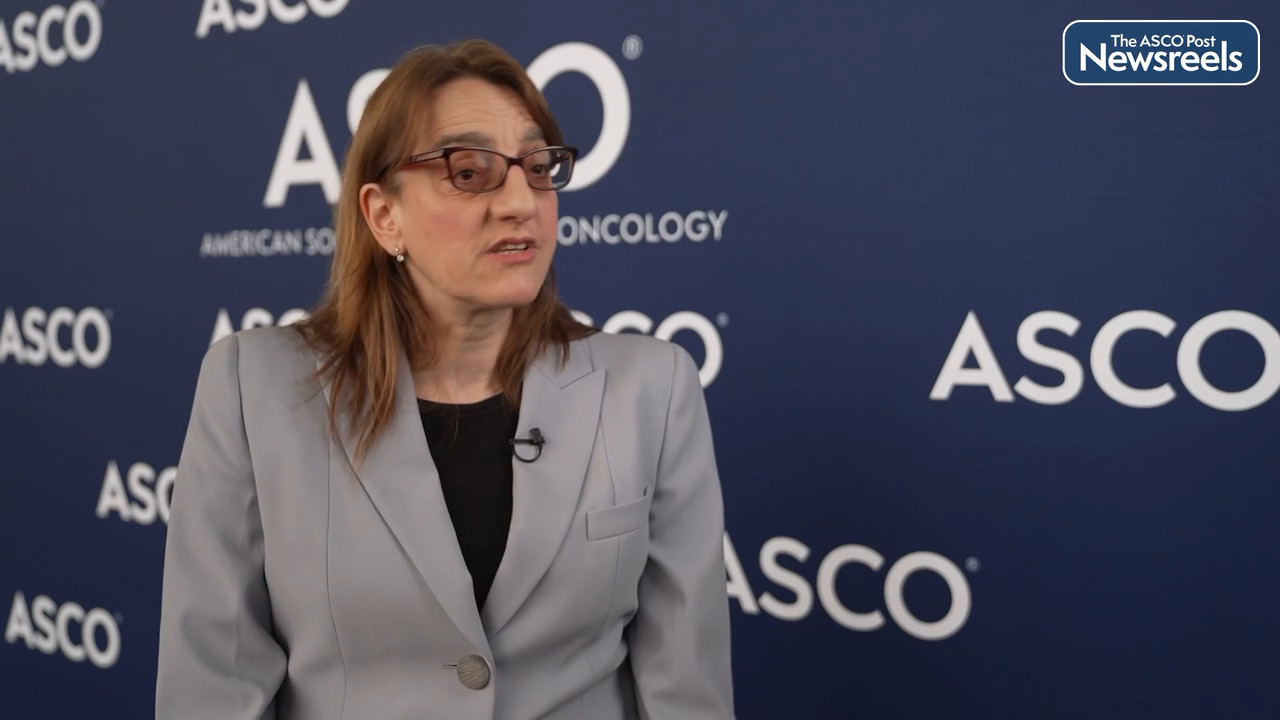Jason J. Luke, MD, on Melanoma Adjuvant Therapy: Final Analysis of KEYNOTE-716
2023 ASCO Annual Meeting
Jason J. Luke, MD, of the University of Pittsburgh Medical Center Hillman Cancer Center, discusses adjuvant pembrolizumab, which, in previous results, improved distant metastasis– and recurrence-free survival in patients with resected stage IIB or IIC melanoma vs placebo. After a median follow-up of 39.4 months, adjuvant pembrolizumab continued to show a benefit over placebo, with no new safety signals (Abstract LBA9505).
Transcript
Disclaimer: This video transcript has not been proofread or edited and may contain errors.
Adjuvant therapy for melanoma has been shifting rapidly and really to the betterment to the patients that were treated in our clinics. KEYNOTE-716 was the placebo controlled phase three clinical trial that demonstrated that pembrolizumab improves recurrence-free and distant metastasis free survival for patients with 2B and 2C melanoma. And of course, the context for this clinical trial was that we've been using adjuvant therapy for stage three melanoma for several years, and yet it wasn't available for patients with stage two. But that being said, the melanoma specific survival of patients with stage 2B and 2C melanoma has been known to actually be worse than that for patients with stage 3A and 3B melanoma, and yet we couldn't treat them. So we launched KEYNOTE-716 really to try to level set the field to give access to patients for a treatment that we know works for patients with similar risk.
So to update the study now, we're presenting Landmark 36 month data with a median of 39 months of follow-up, showing that the recurrence-free survival, but more importantly, distant metastases free survival continues to be maintained and in fact increases in magnitude of benefit with further follow up on the clinical trial. And these are very, very important data for multiple reasons. One, is that they really emphasize this point that patients with stage 2B and 2C melanoma are at high risk of recurrence. But more than that, that adjuvant pembrolizumab is now the standard of care that should be offered to these patients.
Now, of course, there is nuance to the decision about whether or not to choose adjuvant therapy in the postoperative setting. We have to take into account the risks and the benefits. It's clear now that the benefits include more than a 4% reduction in the likelihood of distant metastasis. There are side effects that are associated with immunotherapy, immune related adverse events, which no doubt can take place and be life altering in up to 5% of patients. So that's really where the crux is. With an individual patient, is it worth it to consider an adjuvant therapy that can significantly reduce your risk, albeit potentially also enhance side effect profile?
So I think these data are very important to level set the field. Again, this is a very rapidly moving field, and these data show the landmarks and the benchmarks of what we should expect moving forward. There are multiple adjuvant clinical trials, phase three randomized studies that are now looking to further enhance the standard of care. And these include checkpoint combinations with molecules targeting lag three and tigit, and more recently, the individualized neo antigen therapies that have looked very, very promising. And so we know now that patients with stage two should be included in those clinical trials, and in fact, they are. And I think for the future moving forward, the perioperative setting for adjuvant therapy really will include all patients with stage 2B all the way through stage four resected melanoma.
Related Videos
The ASCO Post Staff
Reid Merryman, MD, of Dana-Farber Cancer Institute, discusses his findings on the regimen of epcoritamab plus rituximab and lenalidomide for patients with high-risk follicular lymphoma. Regardless of whether their disease progressed within 24 months of first-line chemoimmunotherapy, this regimen showed antitumor activity and a manageable safety profile in patients with relapsed or refractory disease. Epcoritamab, a subcutaneous T-cell–engaging bispecific antibody, may abrogate the negative effects of high-risk features (Abstract 7506).
The ASCO Post Staff
Muhit Özcan, MD, of Turkey’s Ankara University School of Medicine, discusses waveLINE-007, a two-part study now recruiting in more than 20 locations, to determine the safety and recommended phase II dose of the antibody-drug conjugate zilovertamab vedotin in combination with R-CHP (rituximab, cyclophosphamide, doxorubicin, prednisone) in previously untreated patients with diffuse large B-cell lymphoma (DLBCL). Efficacy of this regimen will be investigated in the second half of the study (Abstract TPS7589).
The ASCO Post Staff
Lisa A. Carey, MD, of the University of North Carolina at Chapel Hill, and Javier Cortes, MD, PhD, of the International Breast Cancer Center and Universidad Europea de Madrid, discuss phase II findings showing that one in three patients with HER2-positive early breast cancer may safely omit chemotherapy. Among the chemotherapy-free patients treated with trastuzumab and pertuzumab, the 3-year invasive disease–free survival was 98.8%, with no distant metastases (Abstract LBA506).
The ASCO Post Staff
Bobbie J. Rimel, MD, of Cedars-Sinai Medical Center, and Kathleen N. Moore, MD, of the Stephenson Oklahoma Cancer Center at the University of Oklahoma, discuss phase III results from the MIRASOL trial, which showed that mirvetuximab soravtansine-gynx prolonged overall survival vs investigator’s choice chemotherapy in patients with platinum-resistant ovarian cancer with high folate receptor-alpha expression. The findings suggest a new standard of care for this disease (Abstract LBA5507).
The ASCO Post Staff
Funda Meric-Bernstam, MD, of The University of Texas MD Anderson Cancer Center, discusses interim results from the DESTINY-PanTumor02 trial, the first tumor-agnostic global study of fam-trastuzumab deruxtecan-nxki (T-DXd) in a broad range of HER2-expressing solid tumors. This agent showed an encouraging overall response rate, particularly in patients with IHC 3+ expression; durable clinical benefit; and a manageable safety profile in these heavily pretreated patients. T-DXd may be a potential new treatment option for this population (Abstract LBA3000).





